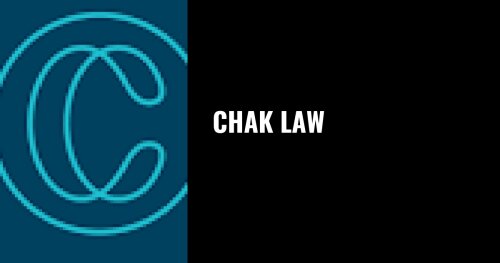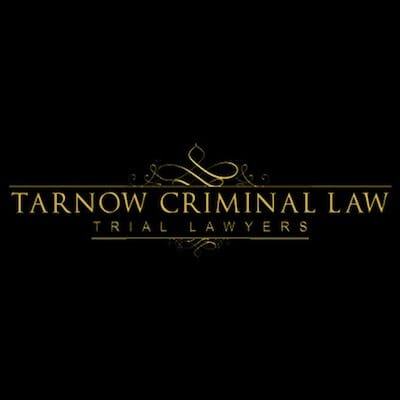Best Arrests & Searches Lawyers in Richmond
Share your needs with us, get contacted by law firms.
Free. Takes 2 min.
List of the best lawyers in Richmond, Canada
About Arrests & Searches Law in Richmond, Canada
Arrests and searches are legal processes governed by federal and provincial laws across Canada, including Richmond, British Columbia. These processes determine how law enforcement interacts with individuals suspected of committing crimes. The Canadian Charter of Rights and Freedoms protects your fundamental rights during arrests and searches. Understanding what constitutes a lawful arrest or search, and what your rights are during these situations, is crucial for anyone living in or visiting Richmond.
Why You May Need a Lawyer
There are many scenarios where legal support is important if you are involved in an arrest or search. You may need a lawyer if:
- You have been arrested or detained by police
- Your home, vehicle, or personal property is being searched
- Police have asked to question you in connection with an investigation
- You believe your Charter rights were violated during an encounter with law enforcement
- You are unsure if you must comply with search or seizure demands
- You are facing criminal charges following a search or arrest
- You wish to file a complaint against police conduct or actions
Legal assistance ensures your rights are protected, helps you understand your obligations, and provides guidance through complex legal processes.
Local Laws Overview
Arrests and searches in Richmond are subject to both federal and provincial laws, with important local practices under the authority of the Richmond RCMP and the British Columbia Ministry of Public Safety and Solicitor General. Key aspects include:
- Police must have reasonable and probable grounds to arrest someone
- A search typically requires a warrant issued by a judge, unless exigent circumstances or certain exceptions apply
- The Charter of Rights and Freedoms guarantees protection against unreasonable search and seizure, and the right to counsel upon arrest or detention
- Police officers must identify themselves and inform you of the reason for your arrest
- Local practices also encourage officers to use the least intrusive means necessary
- Court decisions in British Columbia may affect how police procedures are applied in Richmond
Staying informed about your rights and police powers in Richmond can help you navigate any encounter with law enforcement.
Frequently Asked Questions
What should I do if I am arrested in Richmond?
Remain calm, do not resist, and ask to speak with a lawyer as soon as possible. You have the right to remain silent and to be informed of the reason for your arrest.
Can police search me or my property without a warrant?
Generally, police need a warrant to search your home or property, but there are exceptions such as if you give consent, if you are arrested and a search is connected to the arrest, or if there is an immediate threat to safety.
What rights do I have when stopped or searched by police?
You have the right to know why you are being stopped or searched, the right to remain silent, the right to legal counsel, and the right to be free from unreasonable search and seizure.
If police ask to search my car, do I have to agree?
You do not have to consent to a search unless police have lawful grounds such as a warrant, arrest-related search, or other legal exceptions.
What should I do if I believe my rights were violated during a search or arrest?
Document everything you remember and contact a lawyer immediately. You can also file a complaint with the appropriate oversight body.
Do I have to answer police questions if I am arrested?
No. You have the right to remain silent, though you must provide your name and basic identification if required.
Can police detain me without charging me?
Police may detain you for investigation if they have reasonable grounds, but they cannot hold you indefinitely without laying charges. You must be informed of your rights and allowed to contact a lawyer promptly.
How long can I be held in custody after arrest?
You must be brought before a justice or judge within 24 hours or as soon as possible to be informed of your charges and to determine further detention or release.
What is the difference between a search warrant and a warrantless search?
A search warrant is an order from a judge allowing police to search a location. Warrantless searches occur without advance judicial authorization and are only allowed in specific, limited situations.
Are juvenile rights different during arrests and searches?
Yes. Minors have additional protections, including the right to have a parent or guardian present during questioning and special procedures under the Youth Criminal Justice Act.
Additional Resources
If you need more information or support, these resources may help:
- Legal Aid BC: Offers free legal advice and representation for eligible individuals
- B.C. Civil Liberties Association: Provides information about rights and police powers
- Richmond RCMP Detachment: Handles policing and public safety in Richmond
- Public Safety Canada: Offers resources about criminal law and policing practices
- British Columbia Ministry of Attorney General: Oversees the justice system in B.C.
- Office of the Police Complaint Commissioner: Handles complaints about municipal police conduct
Next Steps
If you believe you need legal advice or representation related to an arrest or search in Richmond:
- Contact a criminal defence lawyer as soon as possible
- Write down everything you remember about your encounter with police
- Do not discuss your case with anyone except your lawyer
- If eligible, apply for Legal Aid services
- File a complaint with oversight bodies if you feel your rights have been infringed
- Follow your lawyer’s advice before attending any court appearances or providing statements
Acting quickly and seeking professional legal guidance will greatly improve your chances of ensuring your rights are protected throughout the legal process.
Lawzana helps you find the best lawyers and law firms in Richmond through a curated and pre-screened list of qualified legal professionals. Our platform offers rankings and detailed profiles of attorneys and law firms, allowing you to compare based on practice areas, including Arrests & Searches, experience, and client feedback.
Each profile includes a description of the firm's areas of practice, client reviews, team members and partners, year of establishment, spoken languages, office locations, contact information, social media presence, and any published articles or resources. Most firms on our platform speak English and are experienced in both local and international legal matters.
Get a quote from top-rated law firms in Richmond, Canada — quickly, securely, and without unnecessary hassle.
Disclaimer:
The information provided on this page is for general informational purposes only and does not constitute legal advice. While we strive to ensure the accuracy and relevance of the content, legal information may change over time, and interpretations of the law can vary. You should always consult with a qualified legal professional for advice specific to your situation.
We disclaim all liability for actions taken or not taken based on the content of this page. If you believe any information is incorrect or outdated, please contact us, and we will review and update it where appropriate.









